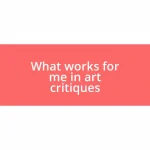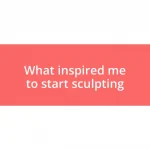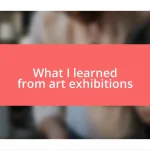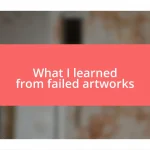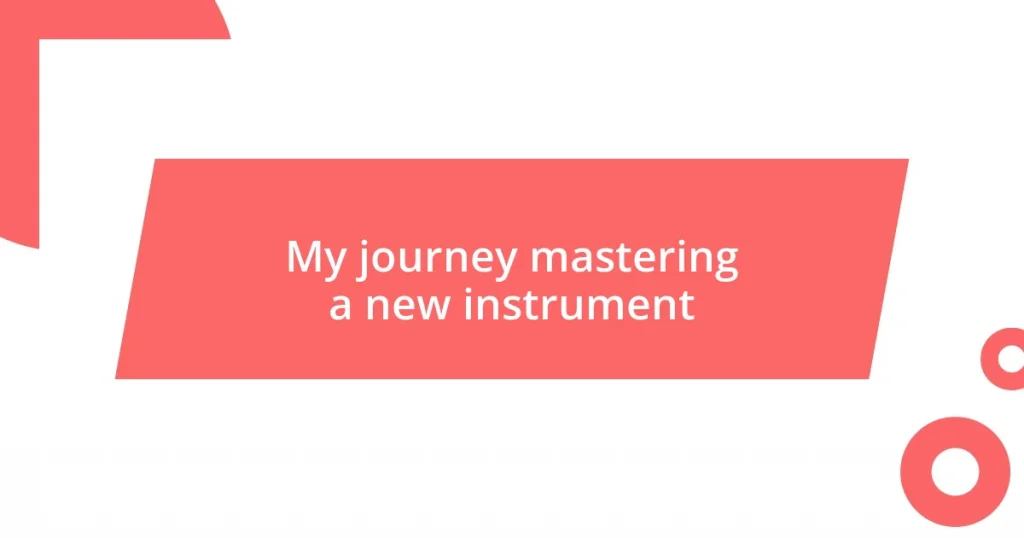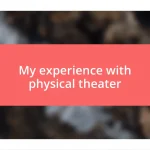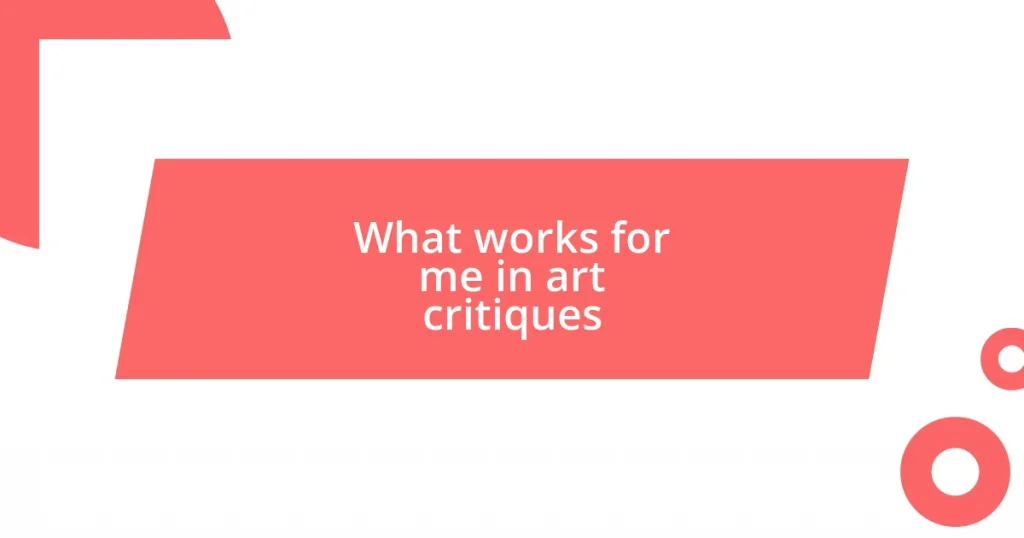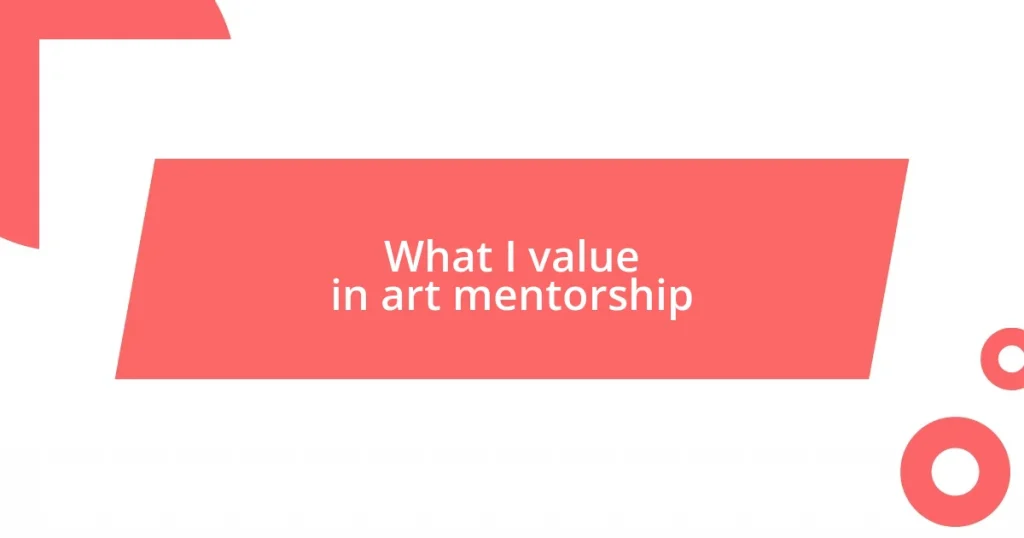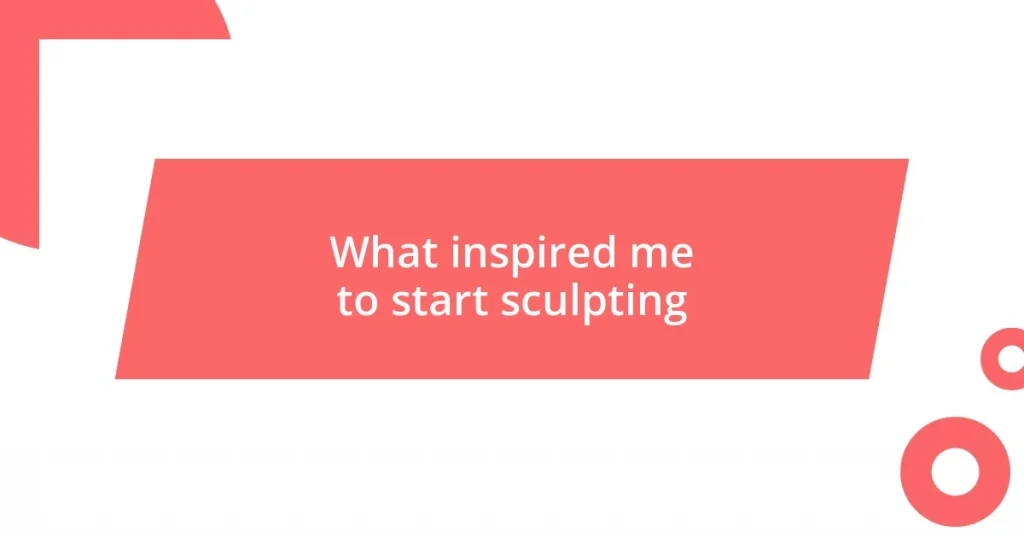Key takeaways:
- Choosing the right instrument involves emotional connection and practical considerations, such as transport and personal interests.
- Setting realistic, achievable goals and creating a consistent practice routine were crucial for maintaining motivation and progress.
- Seeking feedback and mentorship from experienced musicians significantly enhanced learning and helped overcome challenges.
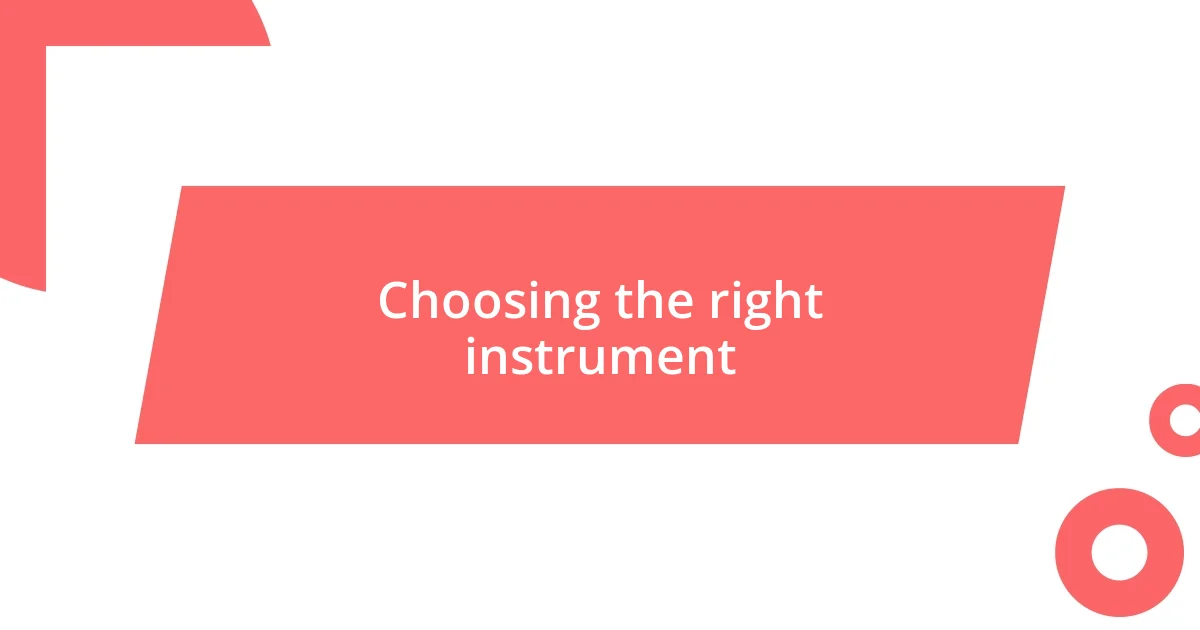
Choosing the right instrument
Choosing the right instrument can feel overwhelming at first. I remember standing in a music store, surrounded by guitars, keyboards, and violins, each beckoning for my attention. I often ask myself: “What resonates with my heart the most?” This question guided me through my choice and helped me connect emotionally with the instrument.
It’s essential to consider your interests and lifestyle when selecting an instrument. For instance, I used to imagine playing the piano at cozy gatherings, filling the room with warm melodies, only to realize that carrying a full-sized piano around wouldn’t be practical! Thinking about how often you’ll practice or transport your instrument can make a significant difference in your decision.
Don’t shy away from trying out different instruments, either! I vividly recall picking up a mandolin on a whim and feeling an instant spark. It’s surprising how the right instrument can inspire creativity and joy. So, what instrument calls to you? Trust your instinct—it might just lead you to an unexpected passion.
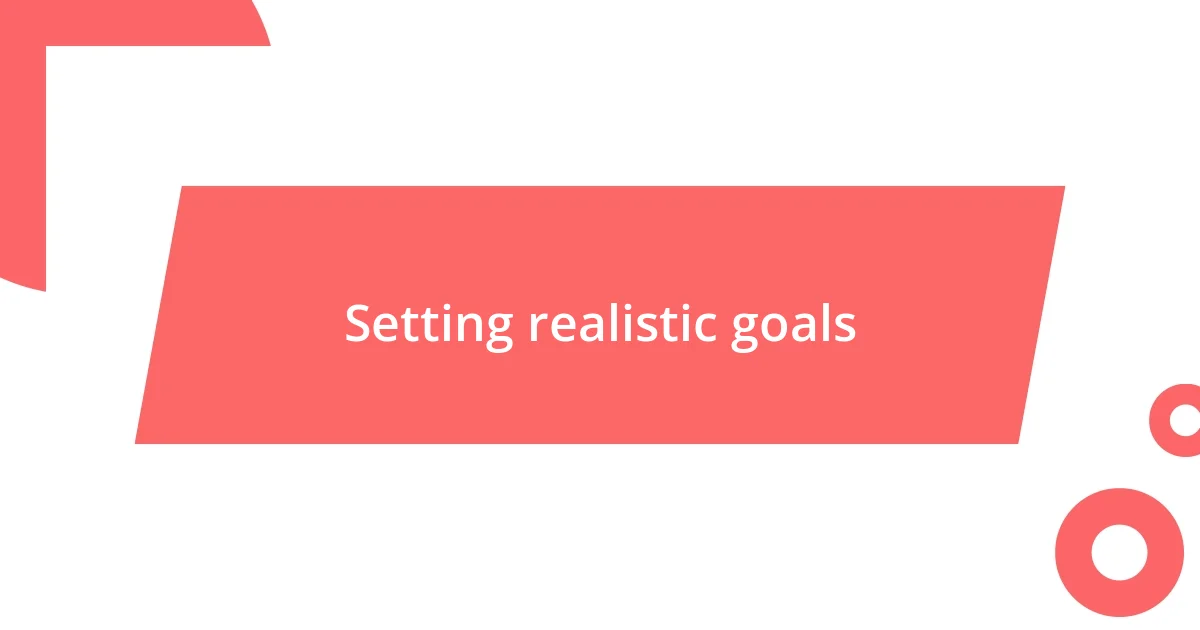
Setting realistic goals
Setting achievable goals is a crucial step in my journey to mastering a new instrument. I remember when I first picked up the ukulele; my excitement fueled grand ambitions. I aimed to strum intricate songs within weeks, but I quickly learned that breaking my goals into smaller, manageable steps was far more beneficial and motivating.
For example, instead of expecting to perform a full song right away, I focused on learning a few chords first. This approach not only eased my frustration but also built my confidence over time. Achieving smaller milestones, like mastering a chord transition, kept the passion alive and made each moment feel rewarding.
Reflecting on my progress, I found that creating a timeline helped visualize these goals. By setting specific targets, such as mastering three chords in a week, I was able to track my improvement and adapt my practice routine as needed. It’s fascinating how these small changes in mindset can lead to significant progress!
| Goal Type | Description |
|---|---|
| Short-term Goals | Mastering basic chords or scales within a week. |
| Medium-term Goals | Learning to play a simple song in a month. |
| Long-term Goals | Performing a song in front of friends or at a local event within six months. |
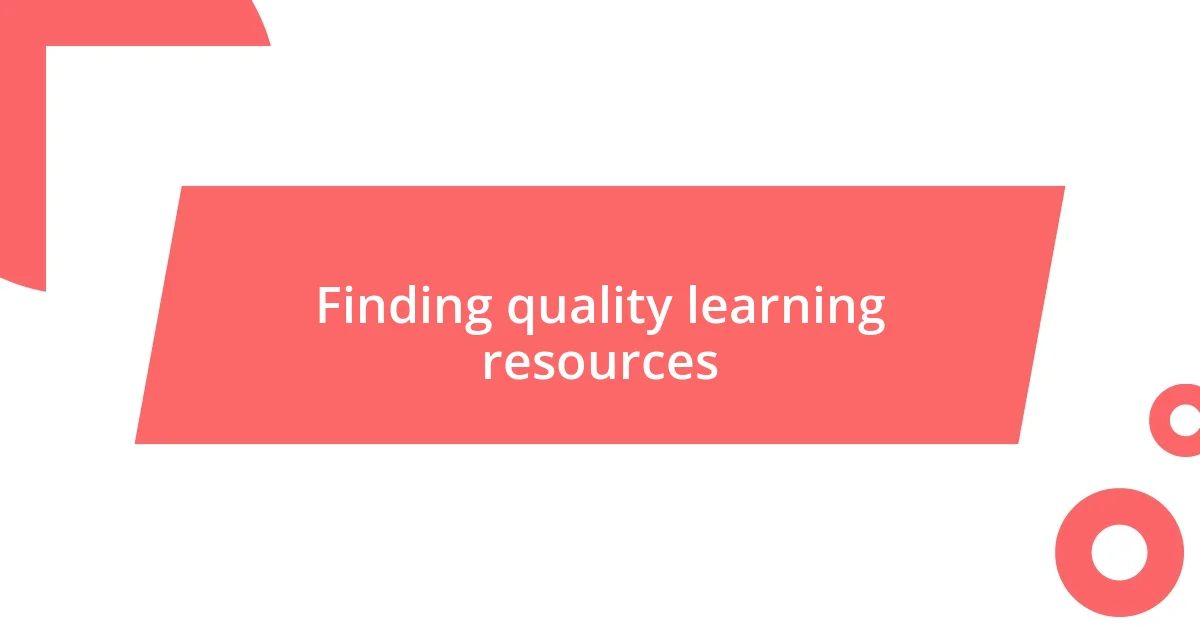
Finding quality learning resources
Finding the right resources for learning an instrument can be a transformative part of the musical journey. I remember diving into online platforms, soaking up tutorials filled with enthusiasm, but it quickly became overwhelming. Sorting through varying quality levels of content was crucial. It’s vital to identify resources that align with your learning style and provide clear, structured guidance.
Here are some valuable learning resources I found helpful along the way:
- YouTube Tutorials: Channels dedicated to beginners often break down complex songs into digestible steps. I found several artists who not only teach but inspire me through their passion.
- Online Courses: Platforms like Udemy or Coursera offer structured lessons that are easy to follow, letting me progress at my own pace.
- Books and Methodologies: I invested in a couple of well-reviewed instructional books; they provide invaluable insights and milestones to measure progress.
- Local Classes: Connecting with a local music teacher brought immense value. Having someone provide direct feedback on my playing made a world of difference.
After experimenting with different resources, I discovered that mixing various approaches ultimately kept my motivation high. Incorporating a blend of video tutorials, personal lessons, and hands-on practice helped deepen my understanding. Realizing that finding quality resources is a dynamic process was invaluable—much like music itself, it’s all about adaptation and growth.
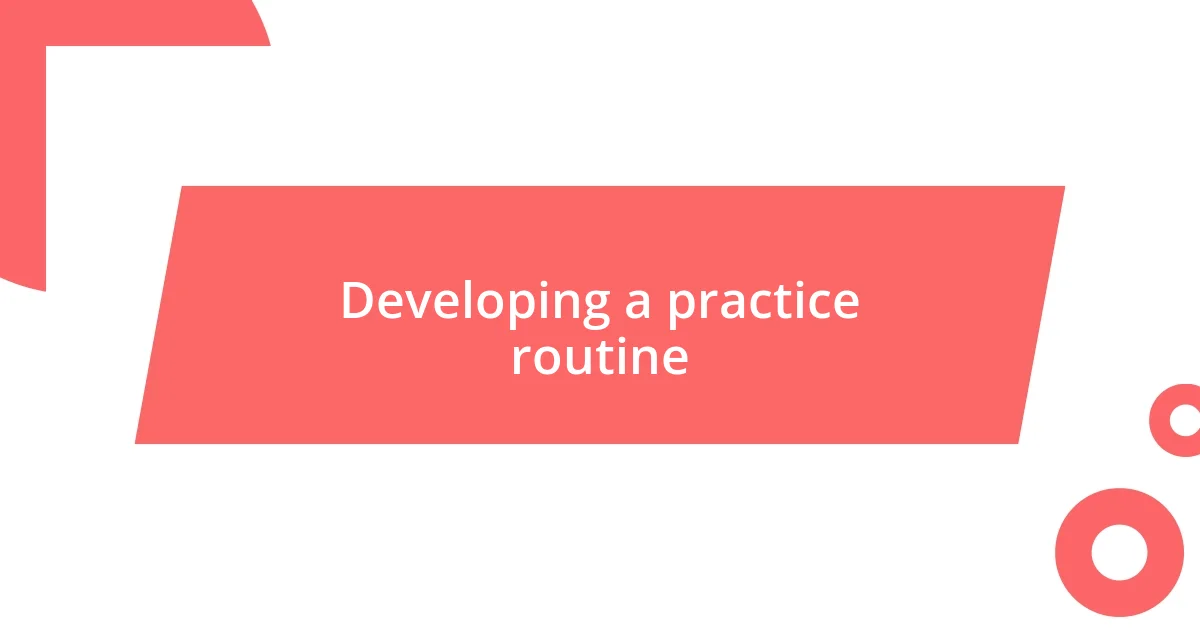
Developing a practice routine
Developing a consistent practice routine was sometimes daunting, yet incredibly rewarding. When I began my ukulele journey, I discovered that scheduling specific practice times really helped. I often started with just 15 minutes a day and gradually increased to half an hour. This small commitment made it easier to stay focused and slowly built my habit. Have you ever noticed how just a little practice every day can lead to remarkable improvements over time?
After a few weeks, I realized my energy levels varied throughout the day. I experimented with practicing in the morning versus the evening, and I found that I could absorb information better when I was well-rested. Keeping a journal helped me reflect on which times worked best for me, and I even tracked my progress after each session. It was enlightening to see how a simple tweak could make such a significant difference. Is there a time in your day when you feel most engaged?
I also learned the power of variety in my practice sessions. At first, I strictly focused on scales, which felt repetitive and somewhat dull. However, by mixing things up with chords, playing along to my favorite songs, and even improvising, I found joy in my practice. This not only kept my sessions fresh and exciting but also allowed me to see real progress. What’s been your experience—do you find excitement in variety, or do you prefer to hone in on one thing at a time?
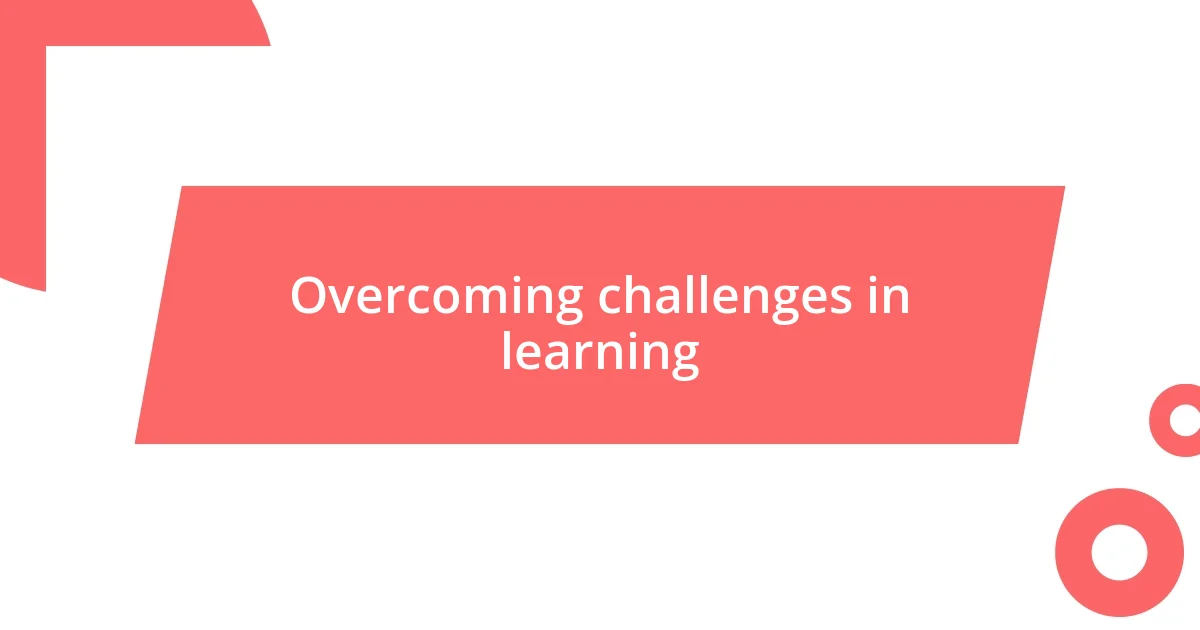
Overcoming challenges in learning
Overcoming challenges in learning an instrument is an integral part of the journey. I vividly recall moments when I felt like giving up. There were days when my fingers ached, and the chords seemed impossible to master. Yet, each small win—such as finally nailing a tricky transition or playing a favorite song without mistakes—brought about a wave of satisfaction that made every struggle worthwhile.
I often engaged in self-reflection, asking what was holding me back. I realized that fear of making mistakes would sometimes creep in, stifling my progress. Embracing a mindset of learning from mistakes was liberating. I remember the first time I played unevenly during a group practice. Instead of feeling humiliated, I used it as a learning opportunity, and that experience shifted my perception of failure. Have you ever turned a setback into a stepping stone?
Finding ways to stay motivated was another layer of my learning process. There were times I felt stagnant, and I questioned whether I was getting better. Setting short-term, achievable goals helped reignite my passion. For instance, challenging myself to learn just one new song each week made the process enjoyable and less daunting. I found that sharing these goals with friends added an element of accountability and encouragement. What small victory are you aiming for today?
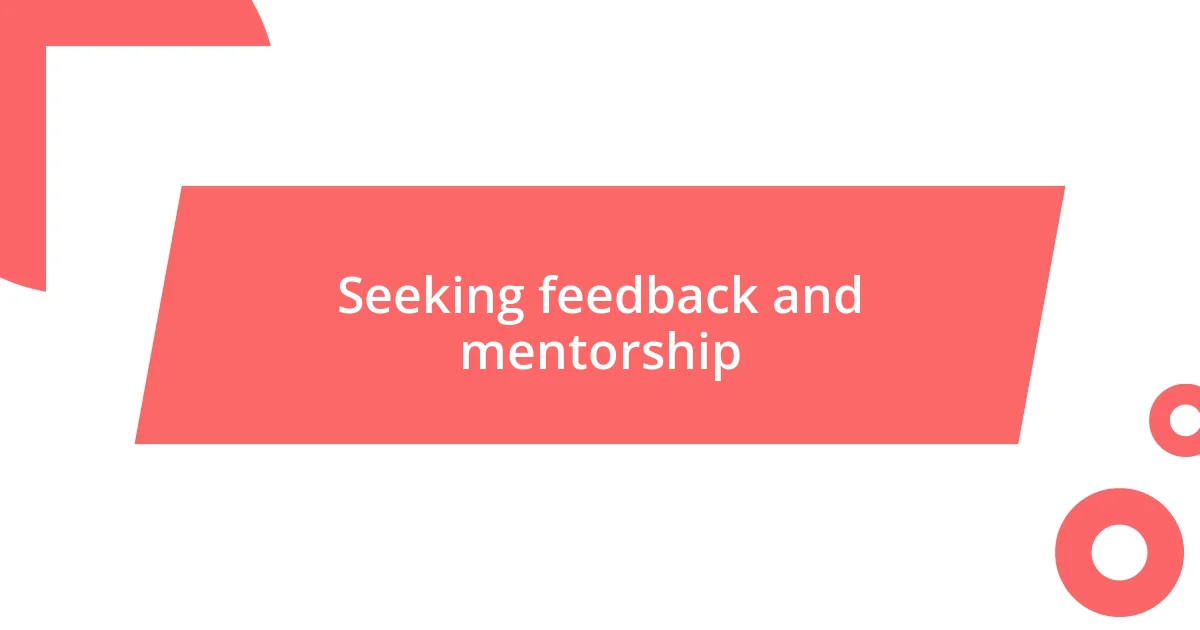
Seeking feedback and mentorship
Seeking feedback and mentorship played a crucial role in my instrumental journey. I remember feeling uncertain about my progress at times and enthusiastically reached out to a local music teacher. Their insights not only clarified my misunderstandings but also inspired me to embrace new techniques that I hadn’t considered before. Have you ever experienced that moment when someone else’s perspective opens up a whole new world of possibilities?
As I continued my learning, I sought feedback from fellow musicians during group jam sessions. Their constructive criticism often highlighted areas I overlooked, like my rhythm and timing. I felt a mix of vulnerability and determination to improve. Nobody enjoys hearing what they need to work on, but I quickly realized that this honesty is what truly fuels growth. Isn’t it fascinating how the support of others can transform how we see our own abilities?
Finding a mentor transformed my approach to learning. I recall one particular session when my mentor guided me through a challenging piece, breaking it down into manageable sections. Their patience and encouragement made me feel empowered rather than overwhelmed. It’s amazing how a mentor can help you navigate complex challenges and keep you motivated. Have you considered finding someone who could guide you along your journey?
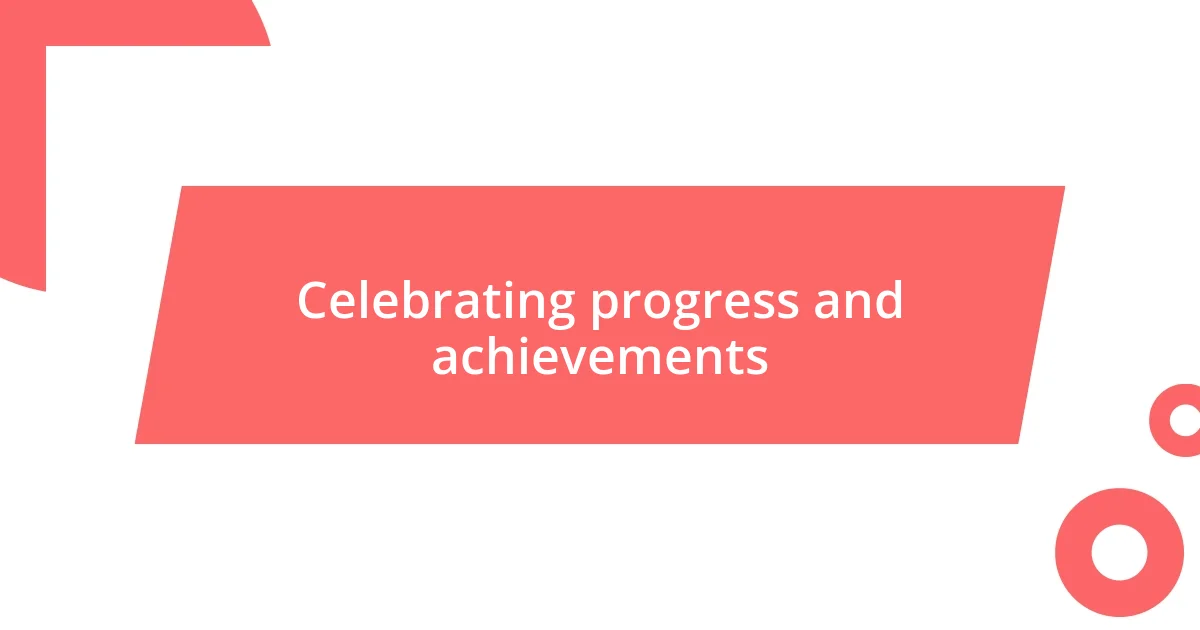
Celebrating progress and achievements
Celebrating progress is essential in mastering a new instrument. Every time I successfully learned a new piece, I made it a point to reward myself—whether it was treating myself to a favorite snack or enjoying a night out with friends. I still cherish those little moments of triumph; they remind me that progress isn’t just about the big milestones but also the small victories along the way. Have you taken the time to acknowledge your own achievements lately?
There’s something deeply satisfying about sharing my musical milestones with others. I recall one evening after I performed at an open mic night; the sense of community and encouragement from fellow musicians filled me with pride. The joy that spread across my face when a stranger approached me to say how they enjoyed my set was a magical validation of all the hard work I had put in. Have you ever experienced that exhilarating feeling of recognition from your peers?
Reflecting on my journey, I’ve come to appreciate how celebrating achievements has motivated me to keep going. Recognizing how far I’ve come—like when I played a song that once felt impossible—serves as a catalyst for future growth. I began to realize that each accomplishment fueled my passion even further. What has been your most significant breakthrough in your own learning process?
